25 Tips to Fall Asleep Fast, According to Science

When you’re not sleeping well at night—and the problem is persistent—your quality of life during the day can quickly reach rock bottom. According to the National Institutes of Health (NIH), the average adult needs between seven and nine hours of sleep per night to avoid the health consequences of a sleep deficiency. These include a range of chronic health issues, including heart disease, kidney disease, hypertension, diabetes, stroke, obesity, depression, and an increased risk of physical injury. If you’ve ever struggled with how to fall asleep fast to avoid these side effects, doctors and scientific studies say there are plenty of health-enhancing habits you can adopt. Read on to learn the 25 best tips for falling asleep fast, so you can finally get the rest your body requires.
RELATED: 11 Bedtime Routines That Will Help You Sleep Through the Night.
1
Try cognitive shuffling.
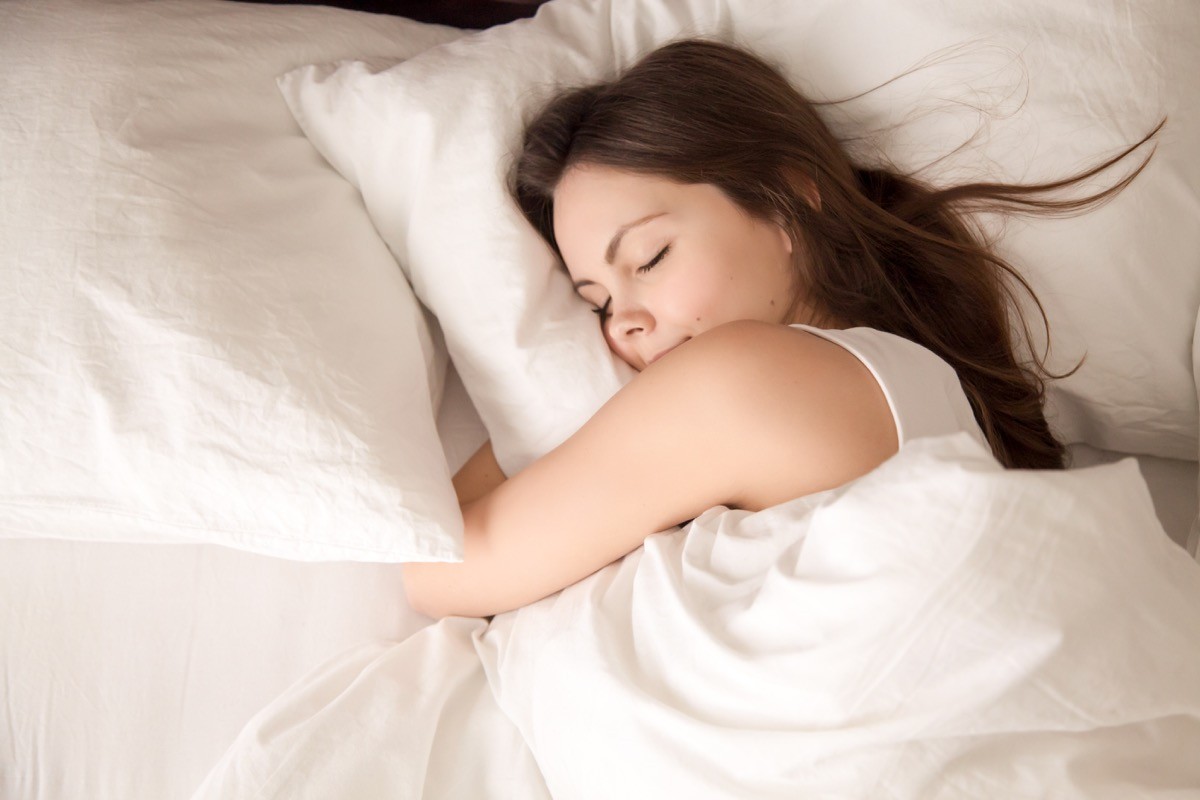
Looking for a simple mental exercise that could get you to bed faster? Scott Walter, MD, FAAD, a board-certified dermatologist and medical content creator, recently took to TikTok to share his favorite method for falling asleep fast. In fact, he says it was “like a light switch moment” once he learned it.
“It’s a simple mental exercise we call cognitive shuffling. It’s a way to rearrange or re-organize your thoughts, similar to shuffling a deck of cards,” Walter explains in his post. “Basically, you’re distracting your mind from the conscious thought patterns that may keep you awake.”
He says you can try it by coming up with strings of random words that have nothing to do with each other—”just random words that make no sense.”
Alternatively, you can pick a letter of the alphabet and begin by counting your heartbeats. Every eight beats, think of a word that begins with that letter. “You may be wondering, ‘how does this work?’ In addition to distracting your brain, cognitive shuffling mimics what are called micro-dreams, which occur during the transition to sleep,” Walter explains. “It lets your brain know, ‘hey, it’s safe to fall asleep now.'”
2
Switch to hardcopy books.
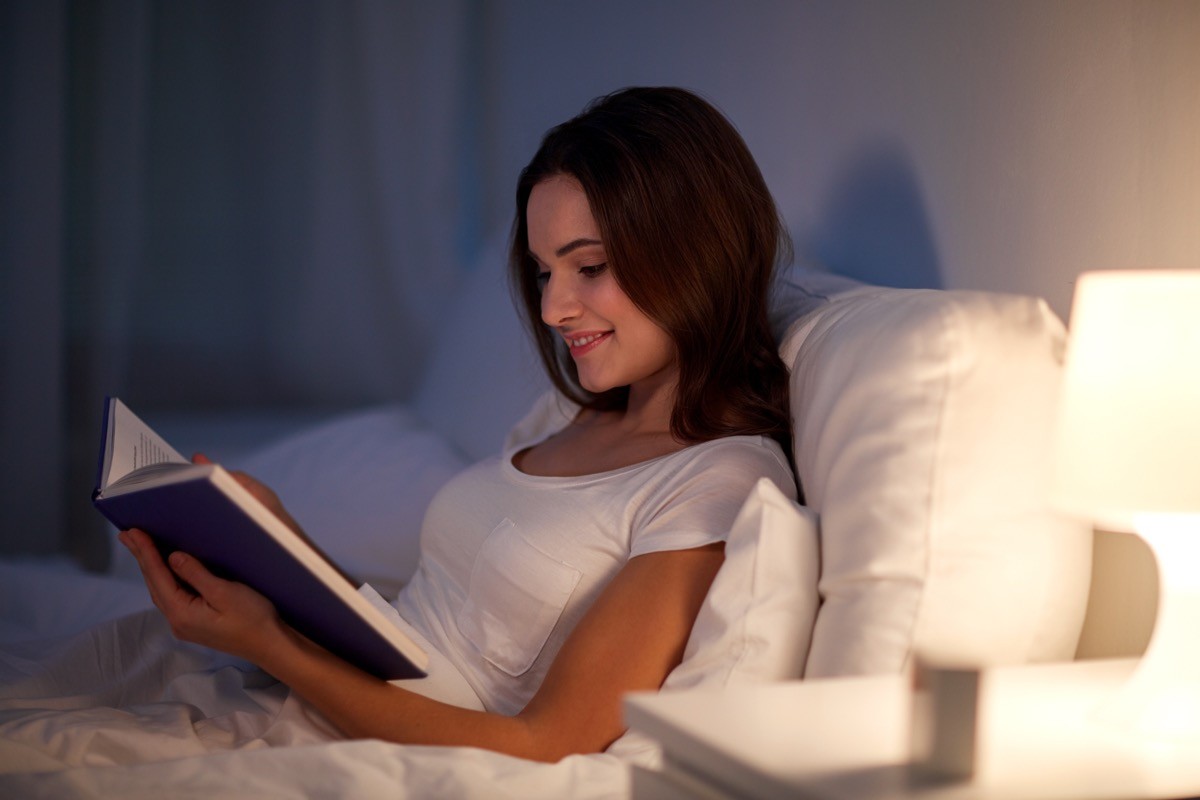
As convenient as e-readers can be, your Kindle could be messing with your sleep schedule.
In a 2014 study published in the journal PNAS, researchers found that the devices emitted blue light that leads to more restlessness and less REM sleep, making it harder to fall asleep and lowering your quality of sleep in general. So go for a good old-fashioned printed book instead! It’s the same reading material and less damage to your rest.
3
Wear blue light-blocking glasses.
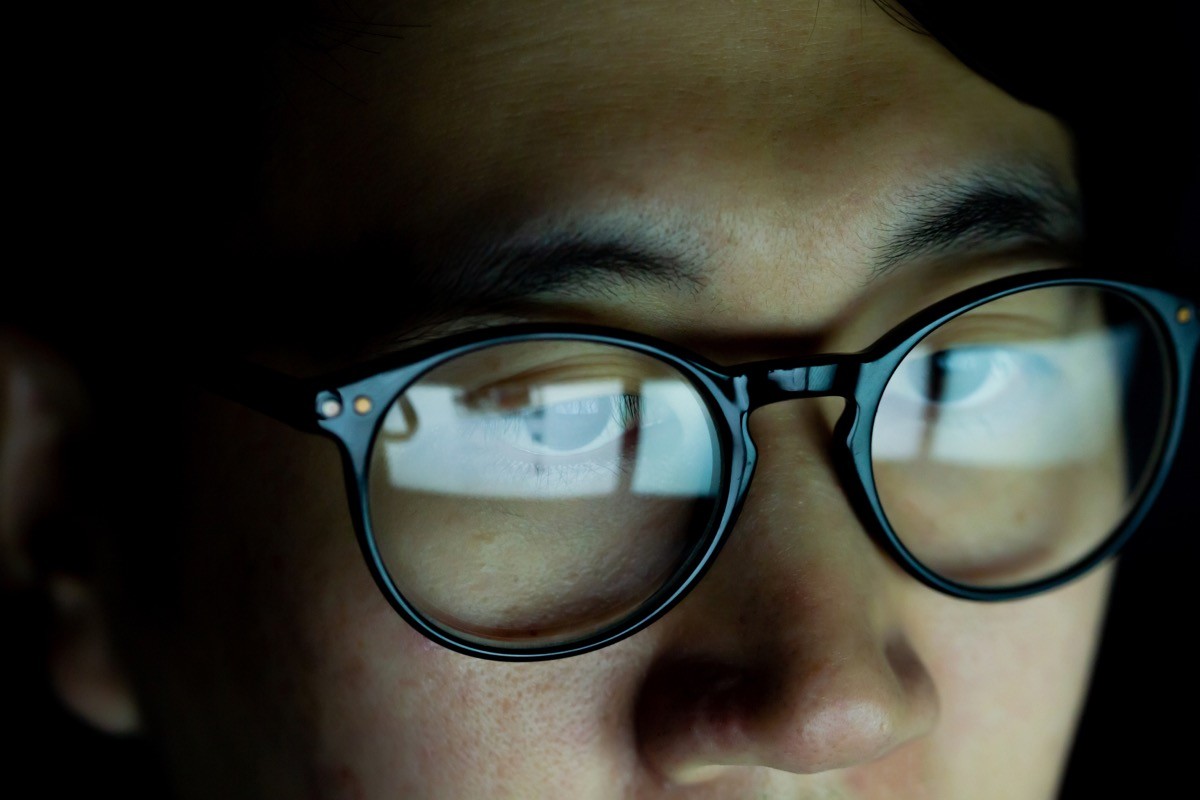
E-readers aren’t the only electronic devices that can emit blue light; your phone and TV do, too. The good news is that you can protect your eyes from damage with blue light-blocking glasses.
In a 2017 study, researchers from the University of Houston College of Optometry found that those who sported blue light-blocking glasses a few hours before bedtime had a 58 percent increase in melatonin levels, which helped their sleep overall. That means you can still use your digital devices at night without messing with your precious zzz’s.
4
Set the scene.
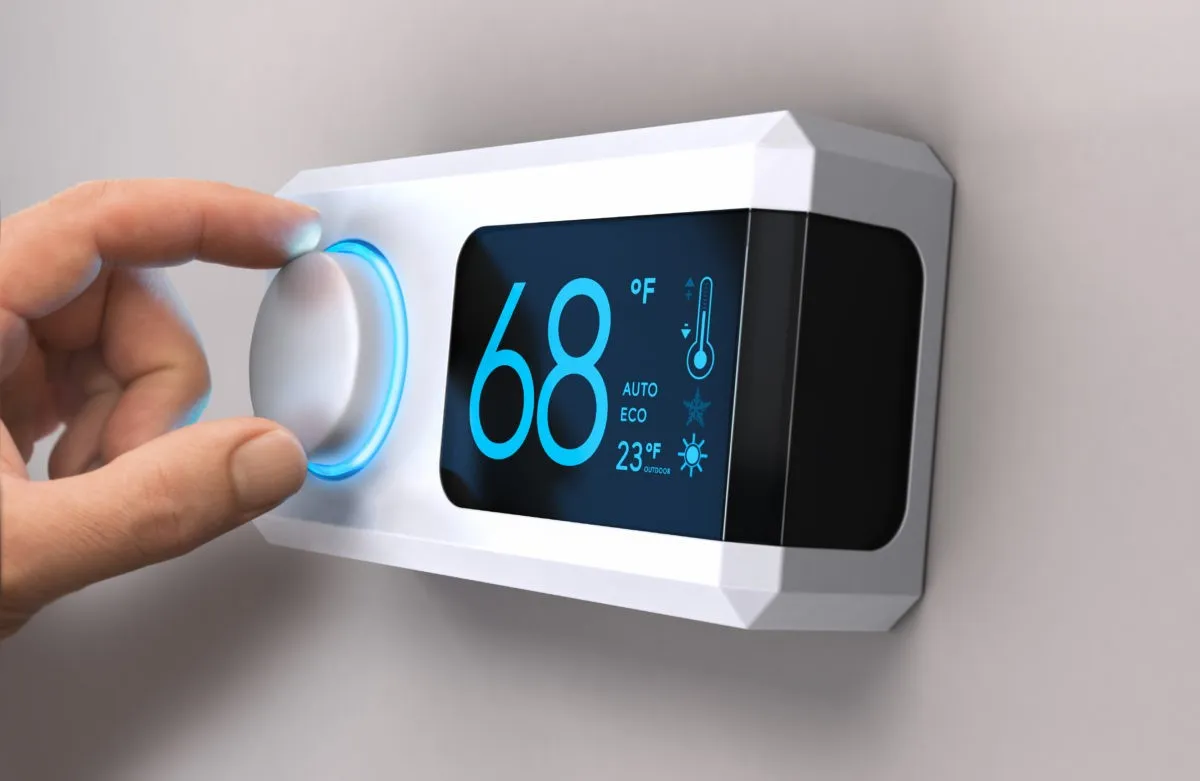
Keeping your room cool, dark, and quiet can help create an environment that’s ideal for falling asleep quickly. Investing in some blackout curtains, a white noise machine or earplugs, and comfy bedding can all improve your duration and quality of sleep.
Setting your thermostat at just the right level can also help you catch more zzz’s. According to the Cleveland Clinic, most people sleep best when their bedroom is between 60 and 68 degrees Fahrenheit. “If your bedroom temperature is above 70° F, it’s too hot,” they write.
5
Move your devices.
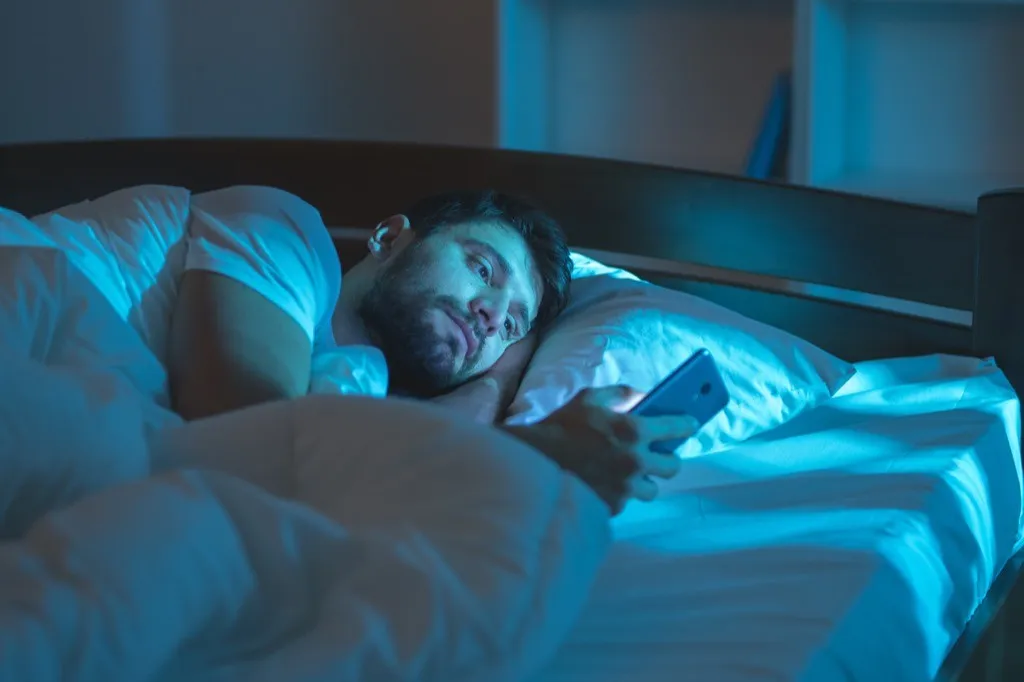
It’s a good idea to put your devices away long before bedtime, but some experts also recommend storing them far away from your sleep quarters.
“Don’t sleep on your phone or have a wifi router right next to your bed,” Anthony Youn, MD, a plastic surgeon and medical content creator, recently told his 8.4 million TikTok followers. “Although the data is limited, it is possible that the EMFs could be disrupting your sleep,” he advises, referring to electric and magnetic fields.
RELATED: Doctor Shares 3 Easy Ways to Stop Peeing So Much at Night.
6
Try diffusing essential oils.

Youn also recommends trying aromatherapy to help you relax before bed.
“Try diffusing essential oils like Roman chamomile or lavender. Studies show that these aromas can have relaxing and calming effects,” he says.
7
Spend 15 minutes in the sun each morning.

If you want to sleep like a champ, start getting your body ready for shut-eye first thing in the morning. According to sleep expert Michael J. Breus, PhD, spending 15 minutes soaking up the sunshine every morning is key to snoozing soundly at night.
“It helps regulate the production of melatonin, the sleep hormone,” Breus wrote on his website. “Your internal body clock—the circadian rhythm—runs on a 24-hour schedule and functions best when you’re exposed to a regular pattern of light and dark.”
8
Cut back on booze.
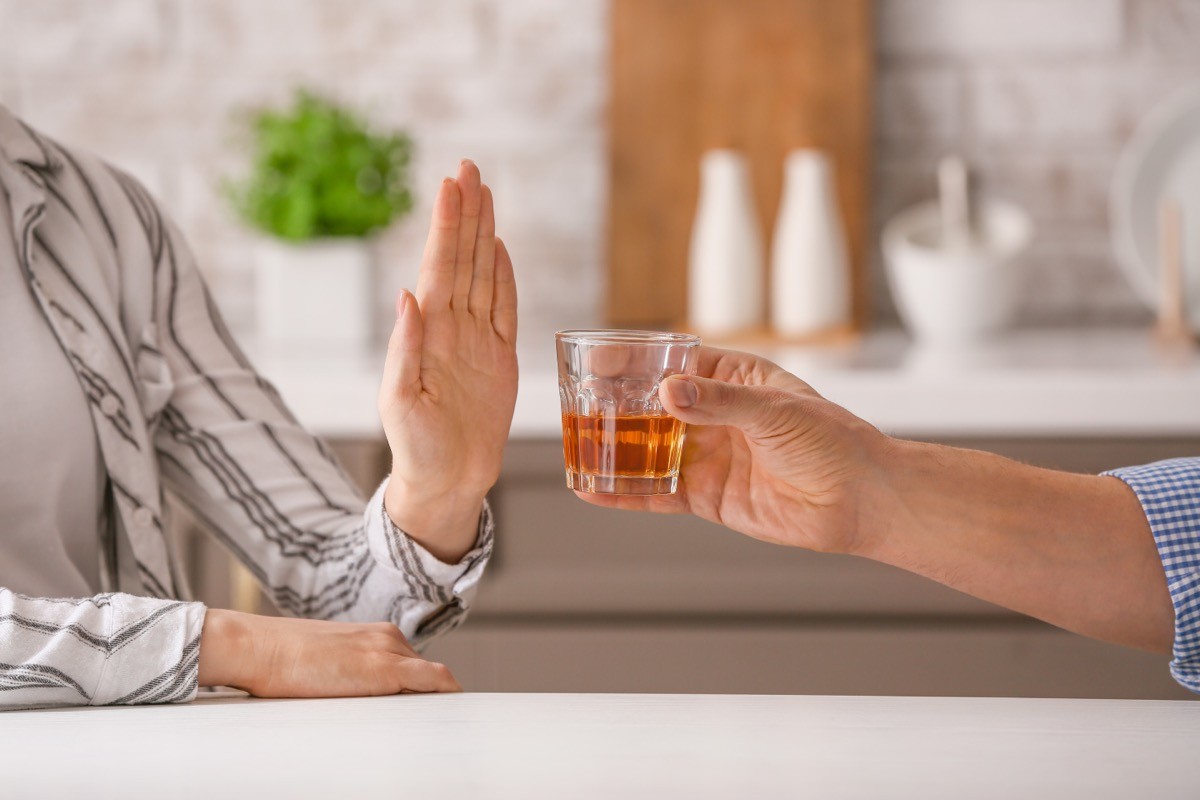
While you may think a drink helps you wind down at night, unfortunately, that’s not the case.
According to the National Sleep Foundation, alcohol might make you feel tired, but it actually makes it nearly impossible to get a good night’s sleep because it interrupts your circadian rhythm, blocks REM sleep, and messes with your breathing, making you more prone to snoring.
9
Skip the caffeine.
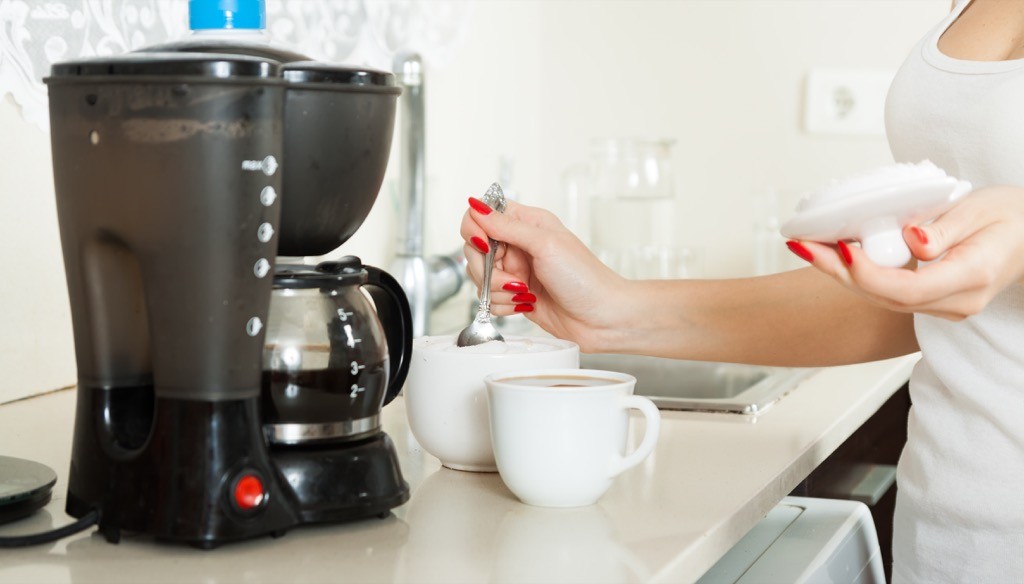
It might seem harmless to grab another iced coffee to get through the notorious mid-afternoon slump, but that caffeinated beverage could be wreaking havoc on your sleep.
According to the National Sleep Foundation, caffeine stays in your body for much longer than you might think. After six hours, only half of what you’ve consumed is gone. So if you have a second cup of joe at noon, by the time you’re ready to hit the hay, you might still feel pretty wired and get low-quality sleep as a result.
10
Listen to binaural beats.
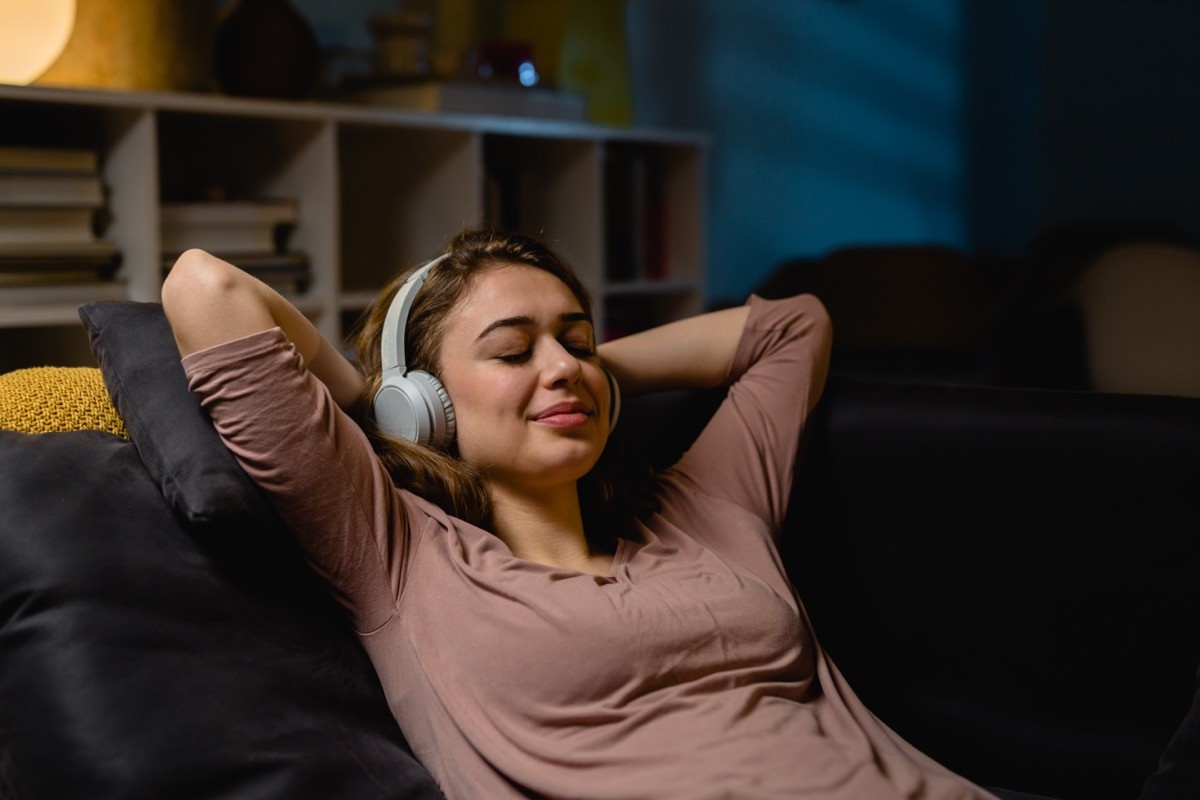
Have you heard of binaural beats? According to Breus, it’s a technique of “combining two slightly different sound frequencies to create the perception of a single new frequency tone.”
That leads to changes in your brain, slowing down activity and helping you relax for a better night’s sleep.
RELATED: 7 Best Clothing Items to Sleep In, Experts Say.
11
Enjoy a cool breeze.
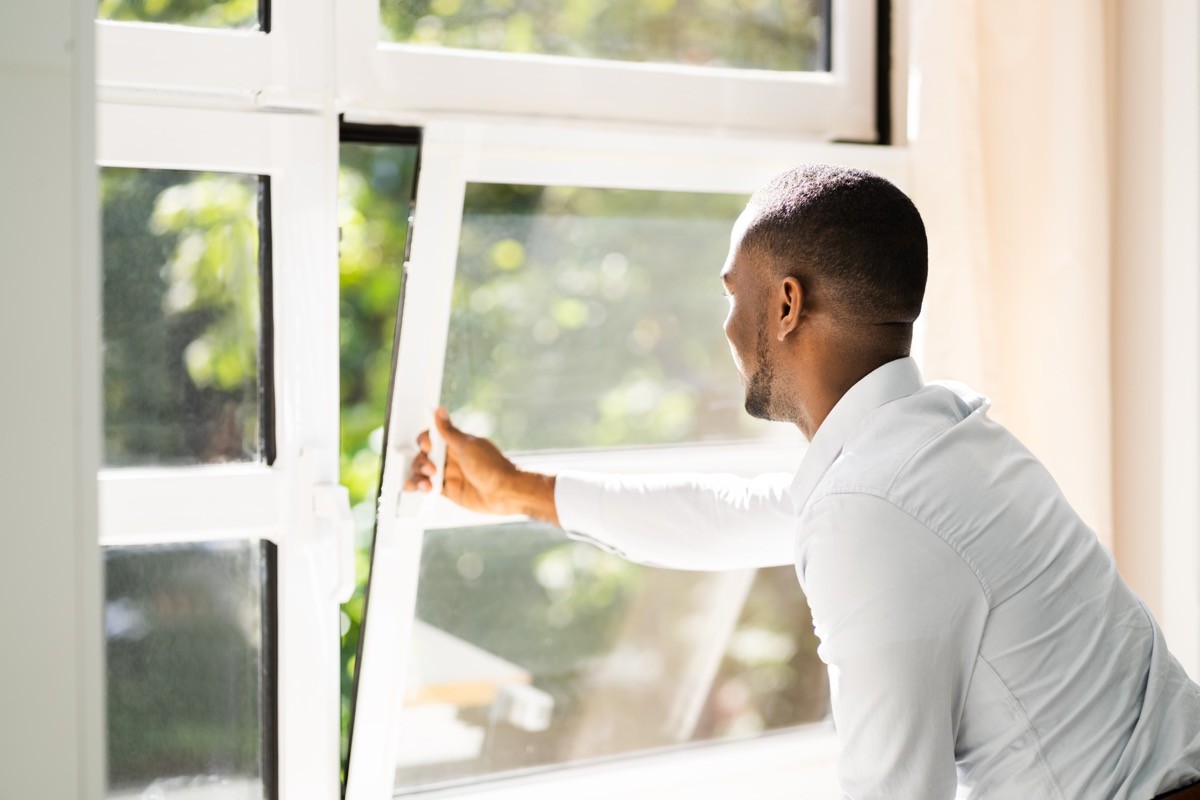
Sometimes the only thing you need to doze off until morning is cracking open a window.
A 2017 study published in the journal Indoor Air analyzed 17 participants over five nights and found that those who had a breeze blowing in their bedroom had lower levels of carbon dioxide in the air, making them sleep better throughout the night.
12
Go on a camping trip.
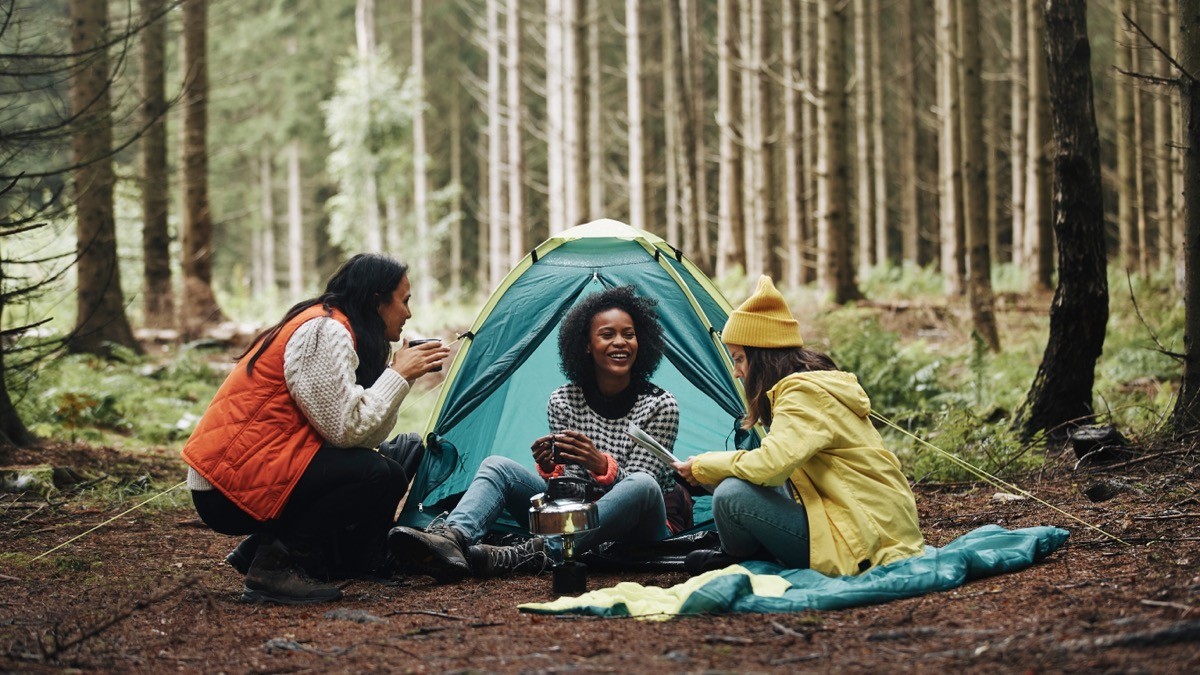
There’s nothing like pitch darkness and total quiet to reset your body and get you back to quality sleep.
In a 2017 study published in the journal Current Biology, researchers found that taking a weekend camping trip and sleeping with a natural light-dark cycle—AKA the rising and setting of the sun—shifted the participants’ sleep schedules—and that pattern continued even after the trip was over.
13
Try to stay awake.
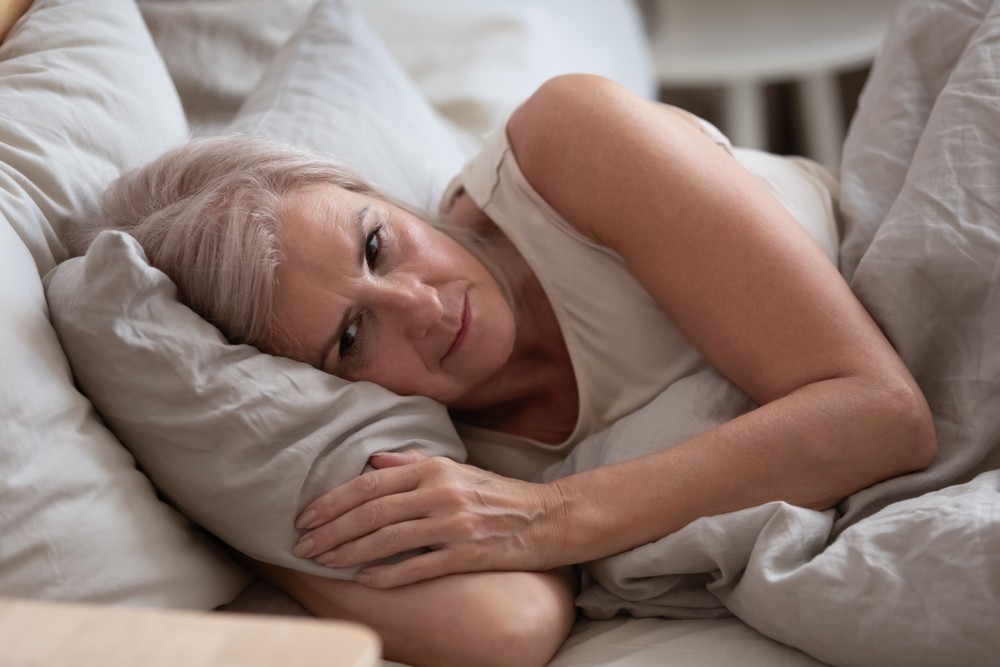
Sometimes, you just need to trick your body with a little bit of reverse psychology. Instead of lying in bed trying to make yourself fall asleep and ultimately failing, the key to a full night’s sleep might actually be trying to stay awake.
Yes, this sounds strange—but an oft-cited 2003 study published in the journal Behavioural and Cognitive Psychotherapy found that when insomniacs lay in bed with the intention of staying awake, they actually fell asleep faster and had a more restful night of sleep.
If you truly can’t seem to sleep, the UK’s National Health Services (NHS) says it’s best not to force it. “Get up and sit in a comfy place and do something relaxing, like reading a book or listening to quiet music. Only go back to bed when you feel sleepier,” they advise.
14
Let your dog sleep in your bedroom.
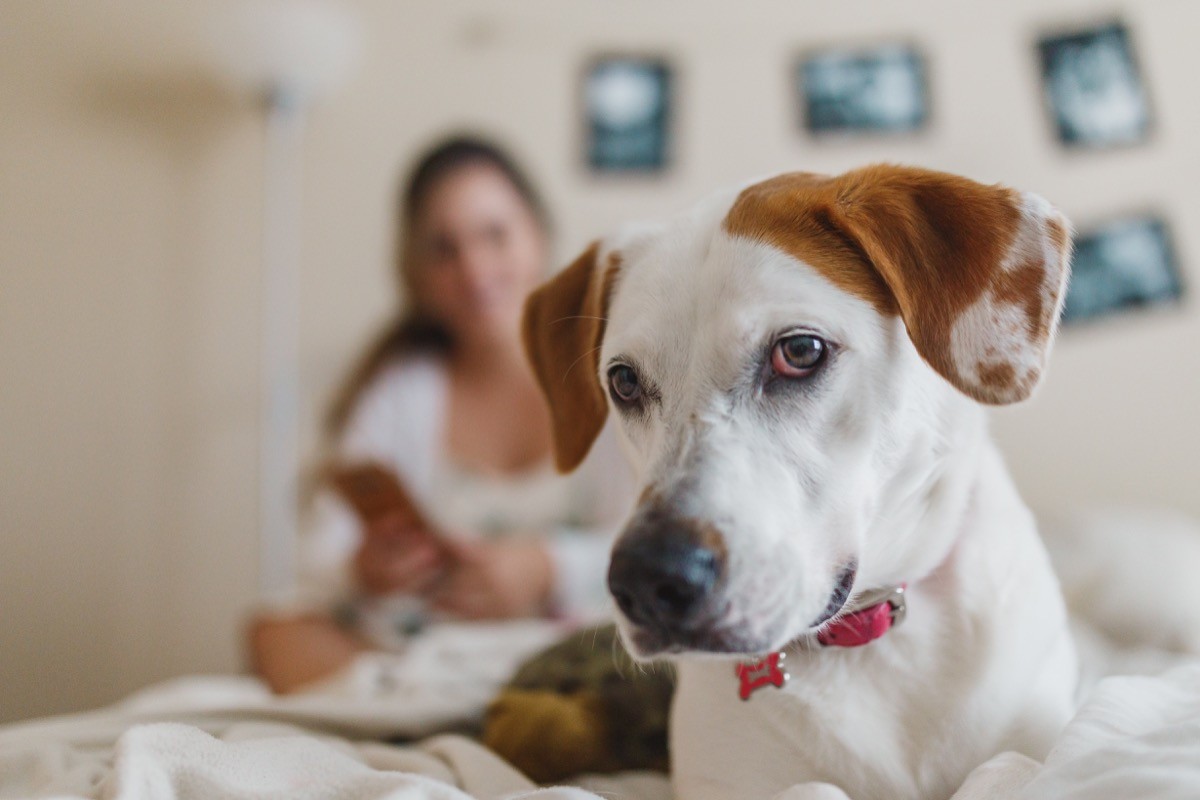
If your dog has turned into your go-to teddy bear at night, that could be a good thing. According to a 2017 study published in Mayo Clinic Proceedings, those who slept with dogs in their bedrooms actually got better sleep than those who didn’t.
And it’s not just because dogs are so warm and cozy, either. Having their furry friends nearby made participants feel safe, making it easier to shut down and relax after a long day. The only problem? Having your dog actually in bed with you doesn’t have the same effect. Get Fido his own spot to sleep, then invite him into bed for some morning cuddles.
15
Find your purpose.
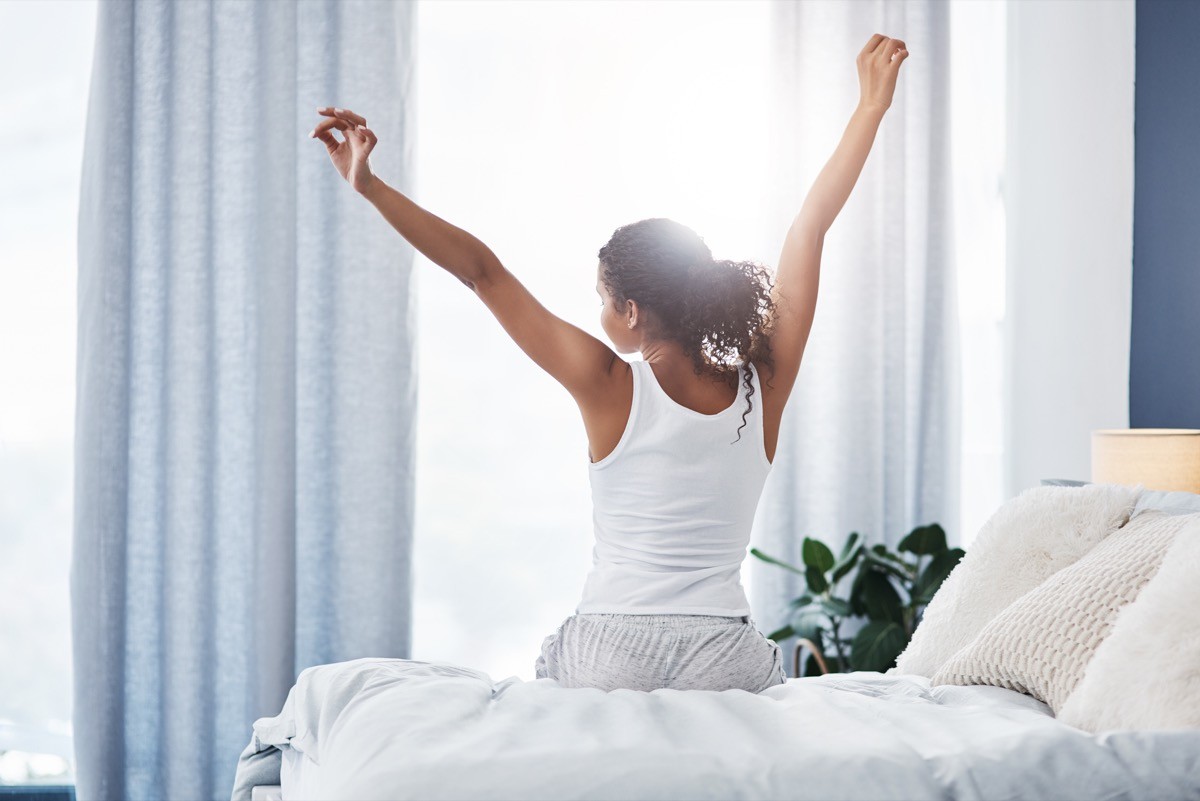
If you’re not looking forward to tomorrow, how are you going to get a good night’s sleep tonight?
In a 2017 study published in the journal Sleep Science and Practice, researchers analyzed 825 adults and found that those who lived their lives with meaning were 52 percent less likely to have restless leg syndrome and 63 percent less likely to have sleep apnea. Because they felt good about what the next day would bring, they had a reason to get up in the morning, making them conk out more effectively at night.
RELATED: I’m a Sleep Scientist and These Are the Top 5 Unhealthy Habits I Avoid.
16
Try meditating.
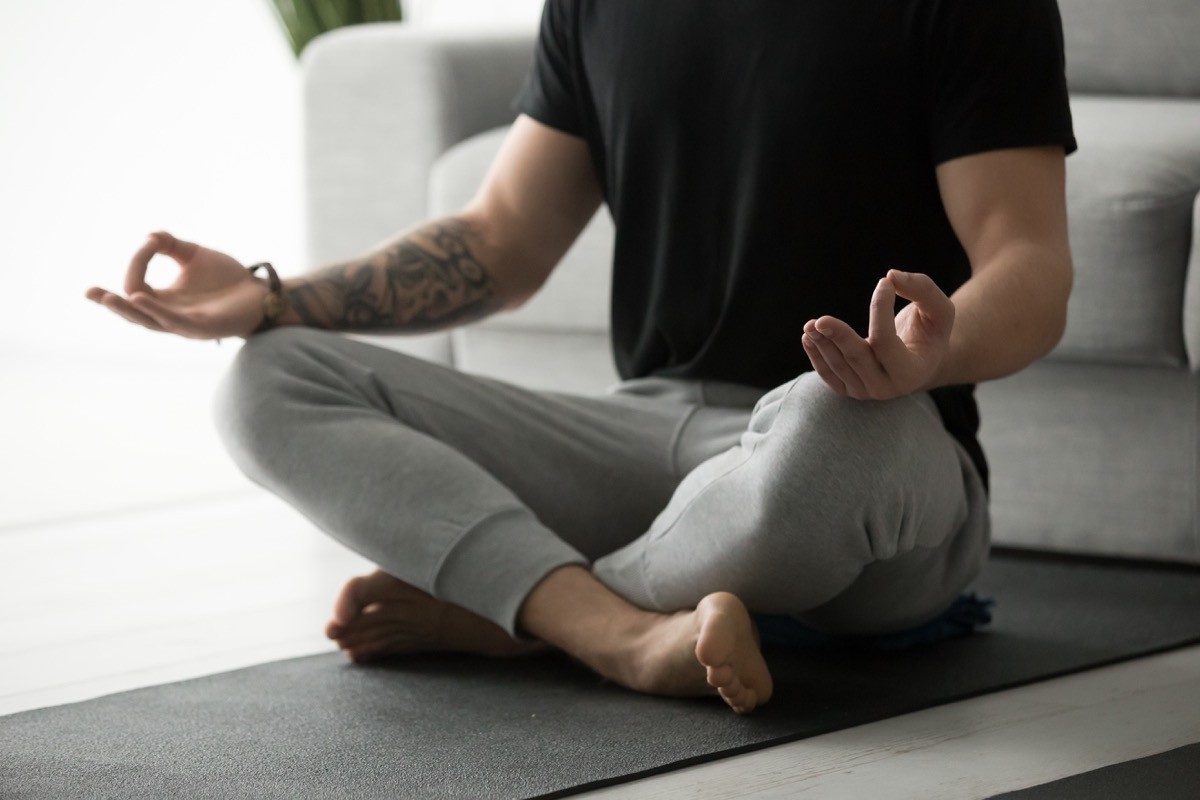
Mindfulness and meditation are hot topics these days—and for good reason. According to a 2015 study published in JAMA Internal Medicine, those who took a mindfulness meditation class actually saw more improvement in their sleep quality than those who tried to learn better sleep techniques.
17
Exercise early in the day.
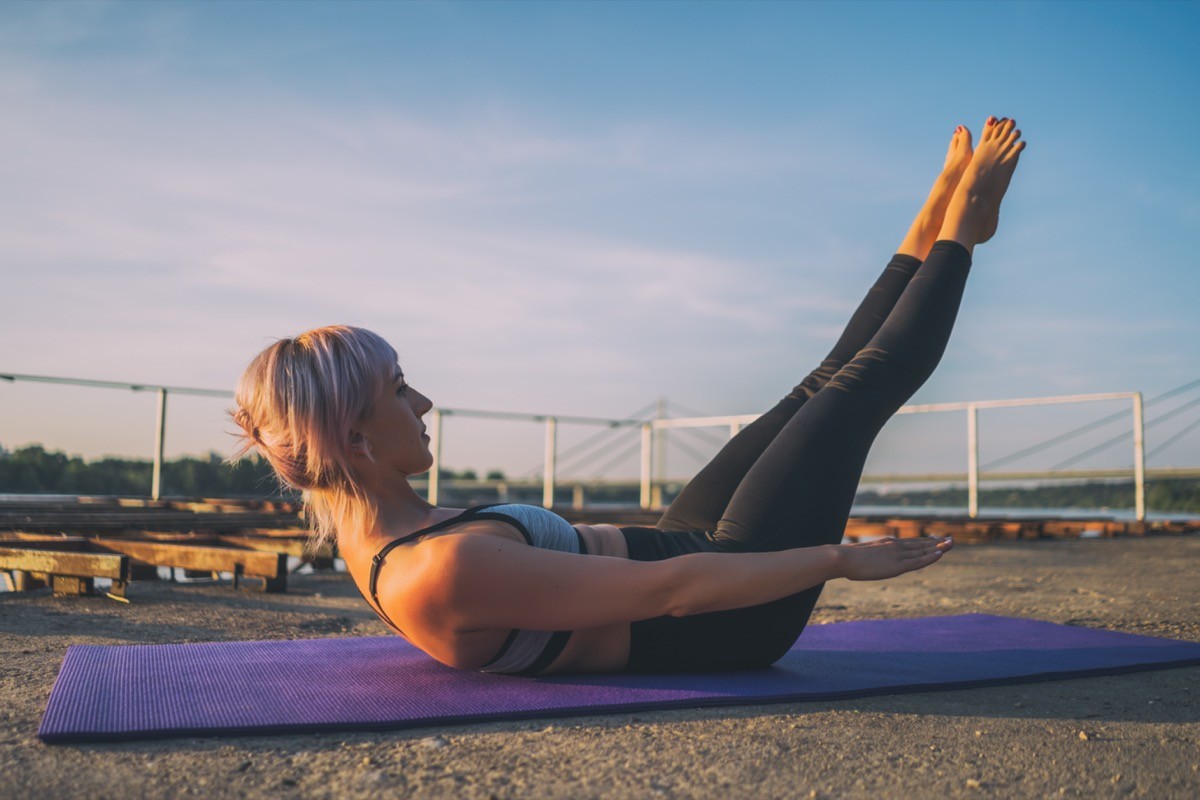
When exercising in the morning just isn’t an option, it’s understandable that you’d try to squeeze in a gym session right before bed.
Sure, you might get in a solid run, but the Mayo Clinic says exercising later on in the day—particularly within a few hours of bedtime—can affect both your ability to fall asleep and the quality of sleep you get once you do.
18
Try taking magnesium supplements.
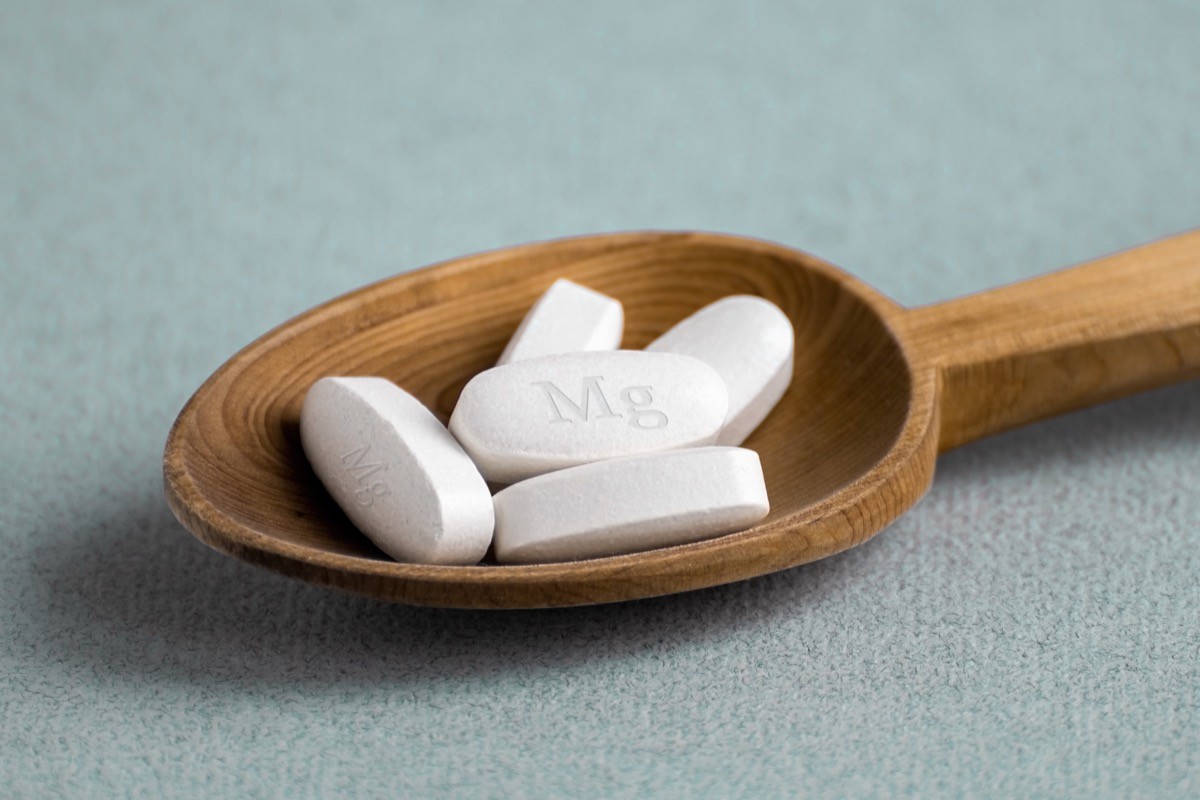
You might have heard people raving about how well magnesium helps them sleep—and they’re on to something.
A 2012 study published in the Journal of Research in Medical Sciences found that when taken before bedtime, the natural sleeping pill of sorts can help improve your quality of sleep, helping you fall asleep faster and stay asleep until morning.
19
Go nuts for nuts.
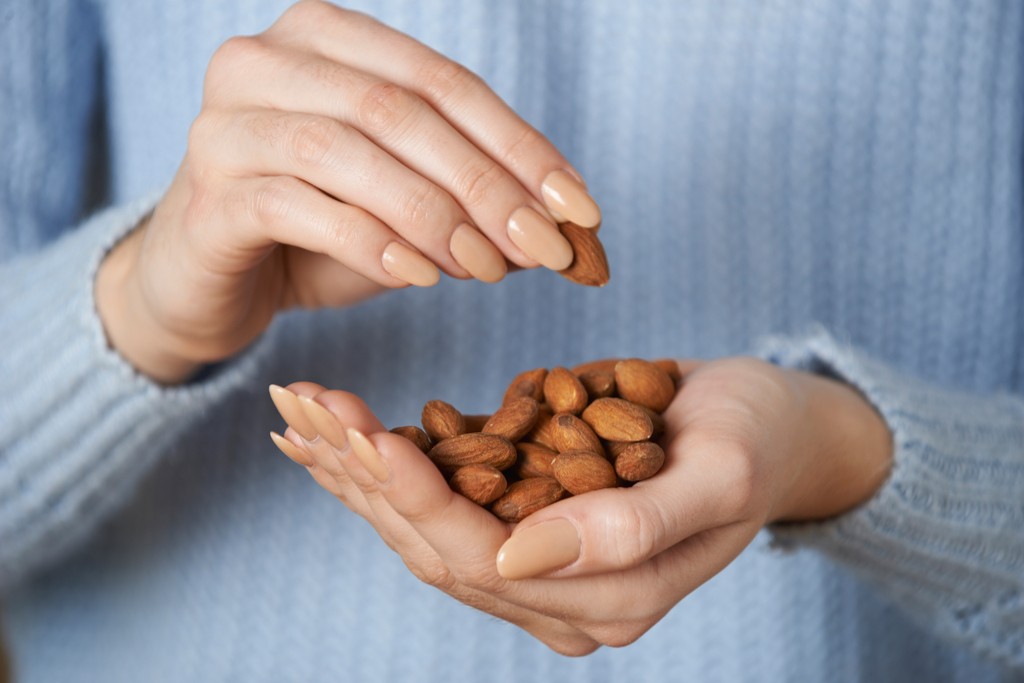
Nuts don’t just make for a super healthy snack option, they also contain ingredients that will help you get a full night’s sleep.
In a 2017 study published in the FASEB Journal, researchers found that eating nuts on a regular basis not only offers sleep-inducing nutrients like magnesium and selenium but also makes the brainwave frequencies associated with sleep stronger—all things that can help you get better rest.
20
Skip your nighttime snack.
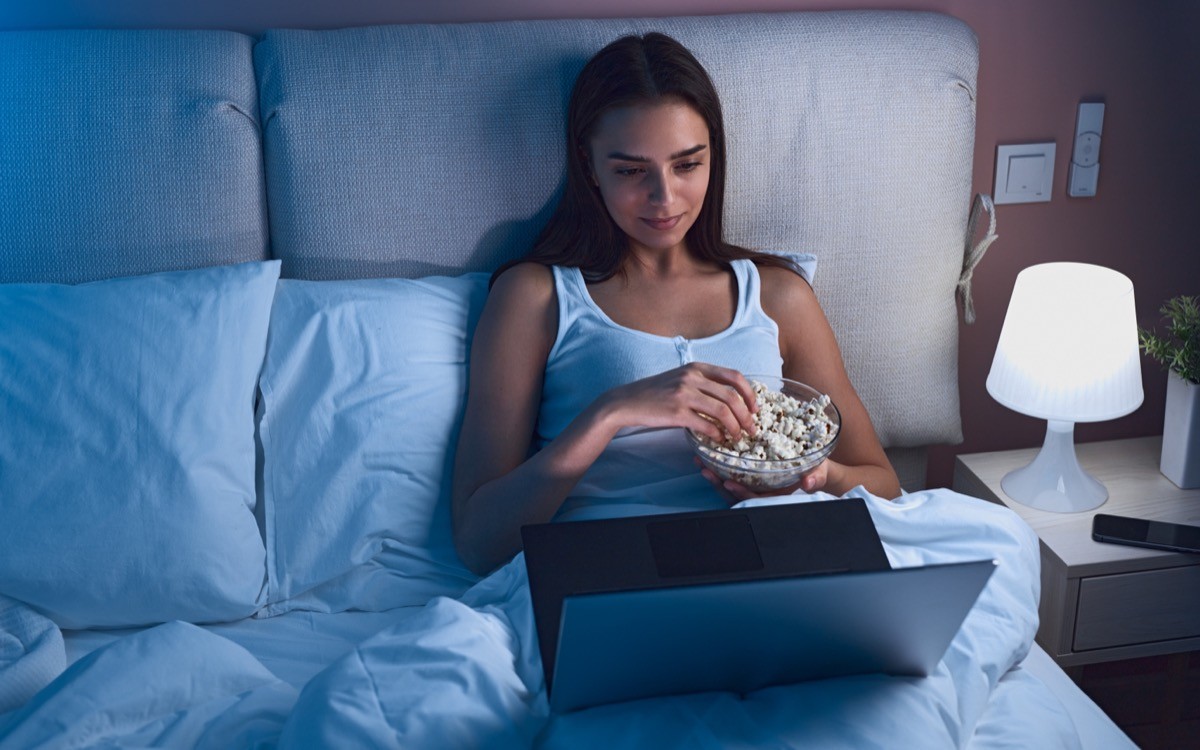
Although having a pre-bedtime snack is tempting, there’s a sound scientific reason for avoiding food at least two hours before going to sleep.
According to the Cleveland Clinic, giving in to the midnight munchies puts your body into full-on digestion mode, which can involve some major discomfort when you lie down and keep you from getting the rest you need.
RELATED: New Study Reveals the Best Bedroom Temperature for Perfect Sleep.
21
Curb your naps.
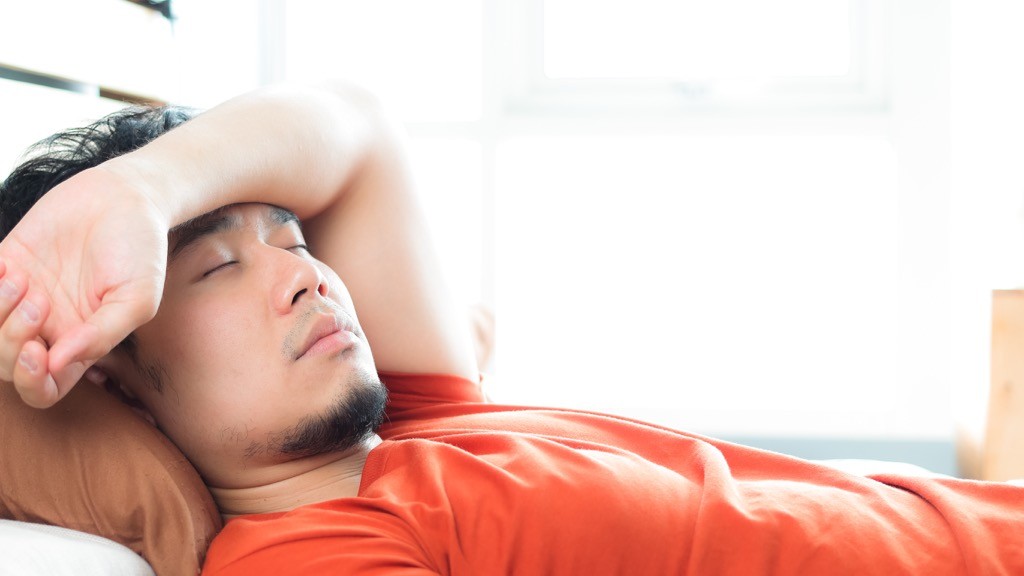
Naps definitely have their perks. They can improve your mood, performance, and memory, but there’s a catch: If your mid-day nap stretches for longer than 30 minutes, you’ll likely mess up your nightly sleep schedule.
According to the Mayo Clinic, napping can make your insomnia and sleep quality worse. To be safe, stick to a quick 10-minute snooze if you’re feeling tired during the day.
22
Try a sleep mask.
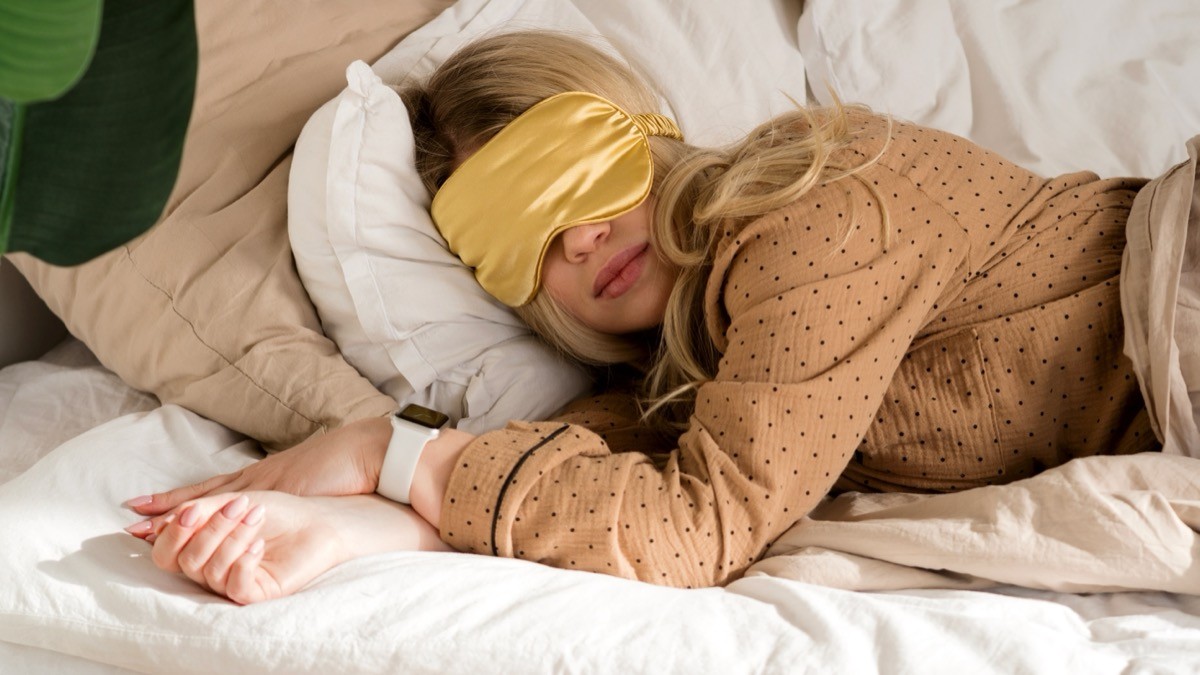
A sleep mask might look silly, but it has an important purpose.
According to the Cleveland Clinic, if you don’t have blackout shades, using a sleep mask to block out light not only helps you get better sleep throughout the night, but also allows you to function at your best the next day.
23
Make a to-do list.
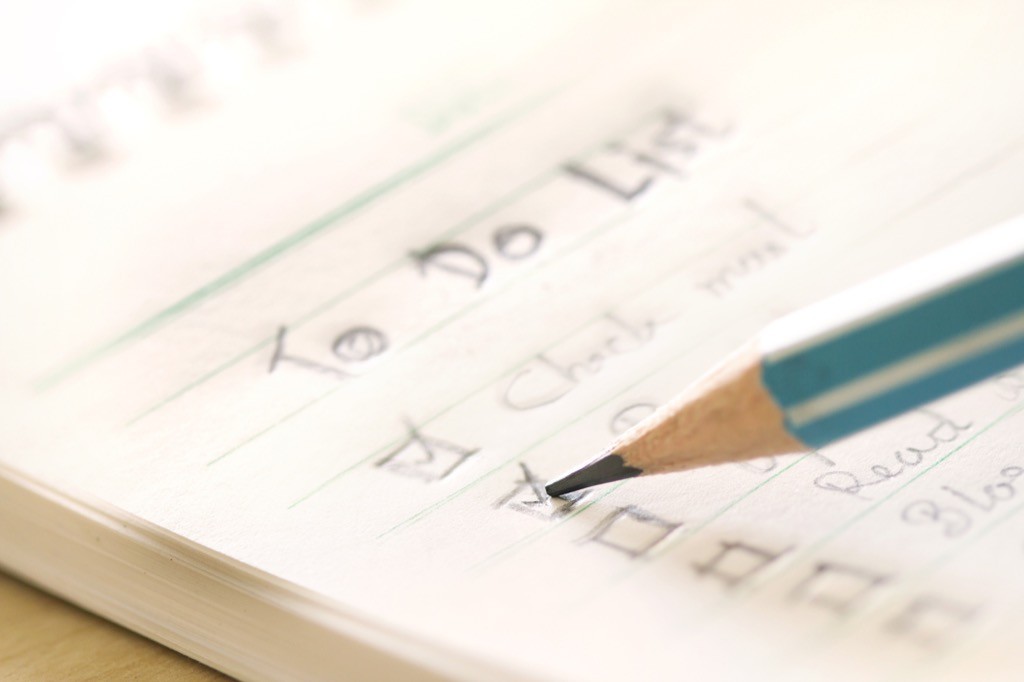
Sometimes it’s difficult to fall asleep because the coming day feels daunting. Instead of ruminating into the early hours of the morning, some experts suggest writing down a plan or to-do list, to shrink your stress down to size.
“If you often lie awake worrying, set aside time before bed to make a to-do list for the next day–this can be a good way to put your mind at rest,” the NHS says.
24
Take a bath or shower before bed.
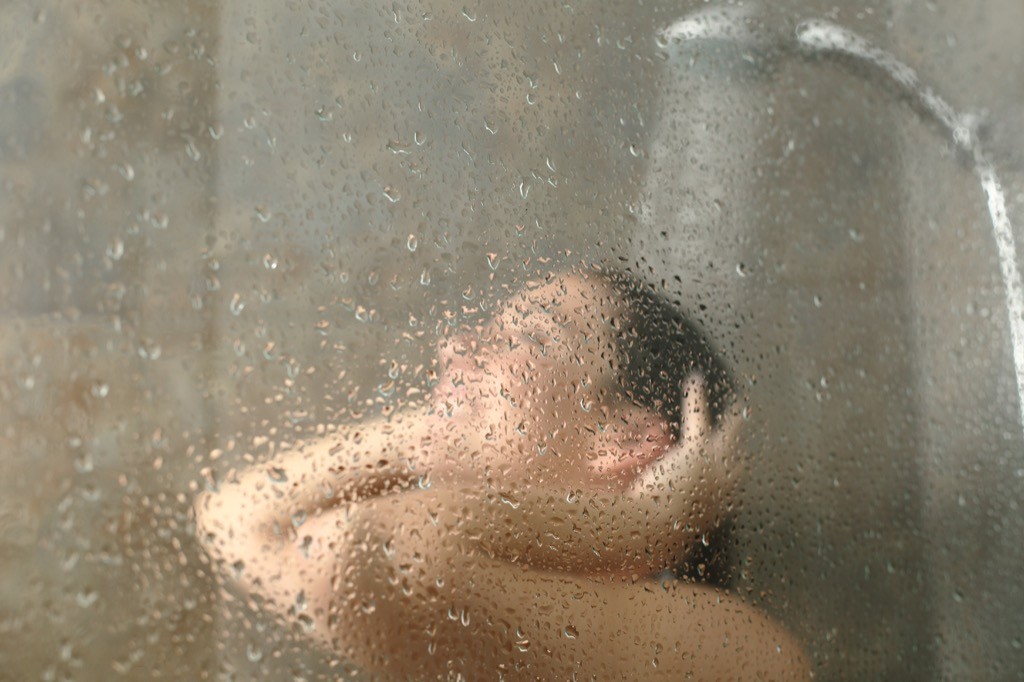
According to the Sleep Foundation, ample research seems to suggest that taking a warm bath before bed can improve your sleep.
“A meta-analysis of 17 studies found that taking an evening shower or bath in water between 104 and 108.5 degrees Fahrenheit improves sleep quality. Those who bathe or shower one to two hours before bedtime also fall asleep faster,” they write.
25
Keep your feet out from under the covers.
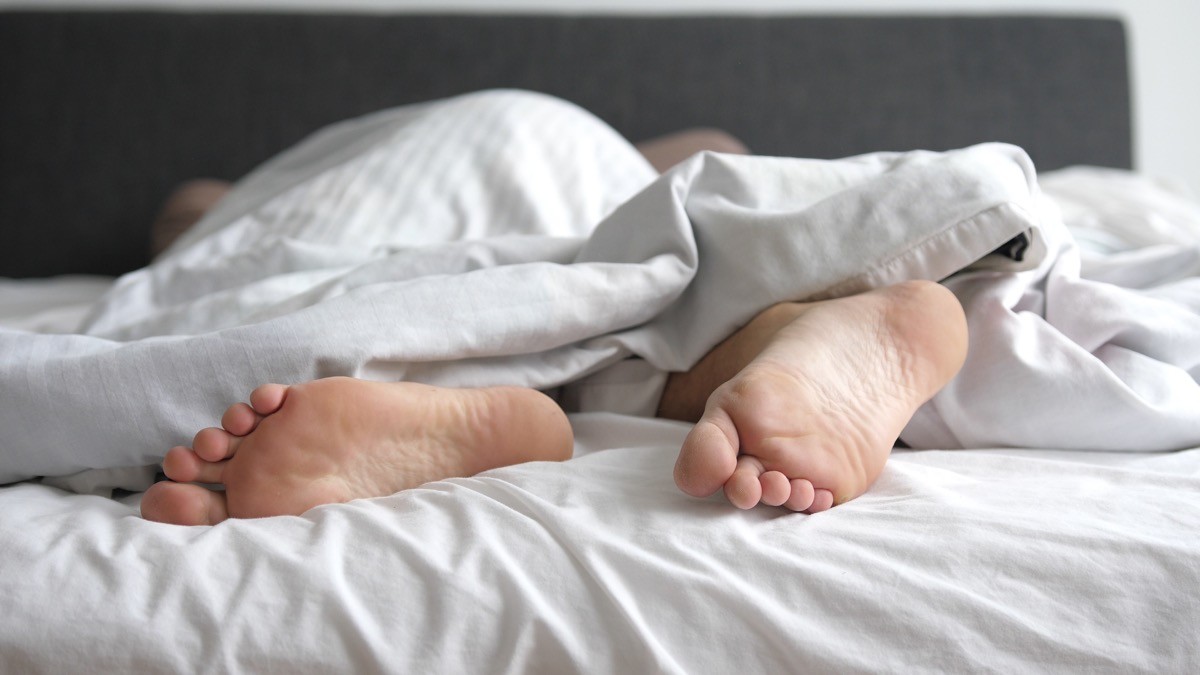
If you already sleep with one foot hanging off the bed, you’re on the right track—the habit can seriously improve your quality of sleep.
Natalie Dautovich, PhD, spokesperson for the National Sleep Foundation, told The Cut that temperature is a huge factor in getting a good night’s sleep. And keeping your feet exposed helps ensure that your body doesn’t get too hot, which can prevent you from getting that much-needed shut-eye.